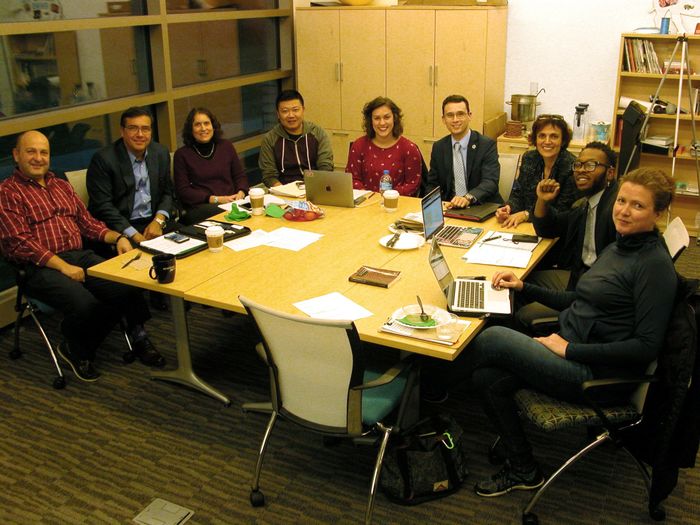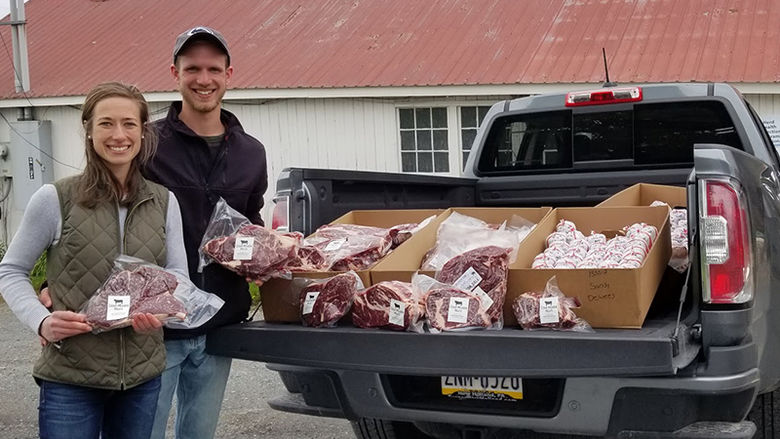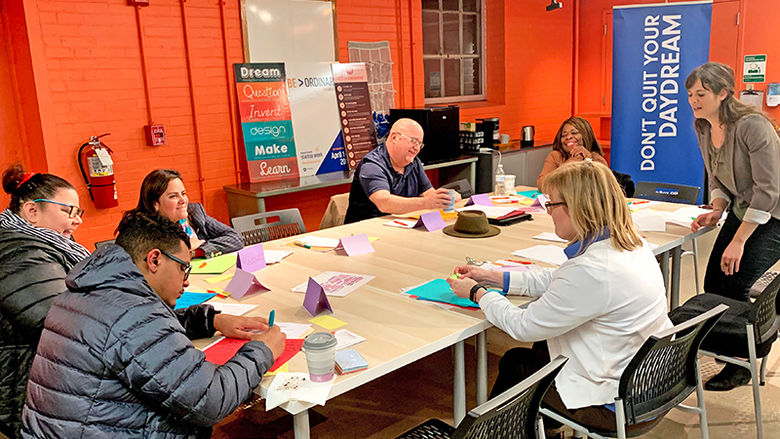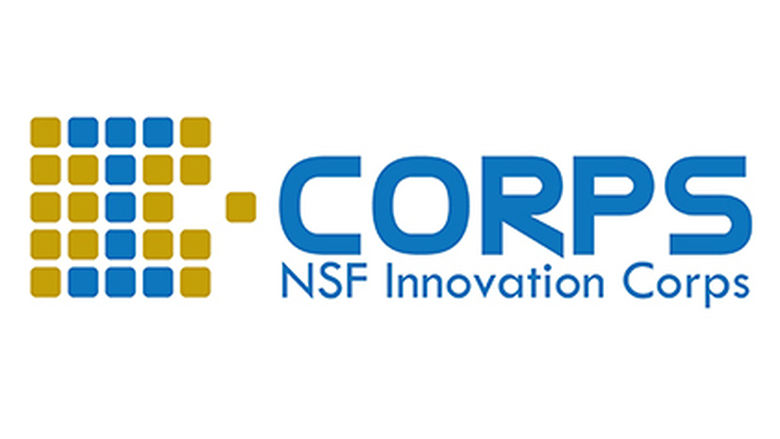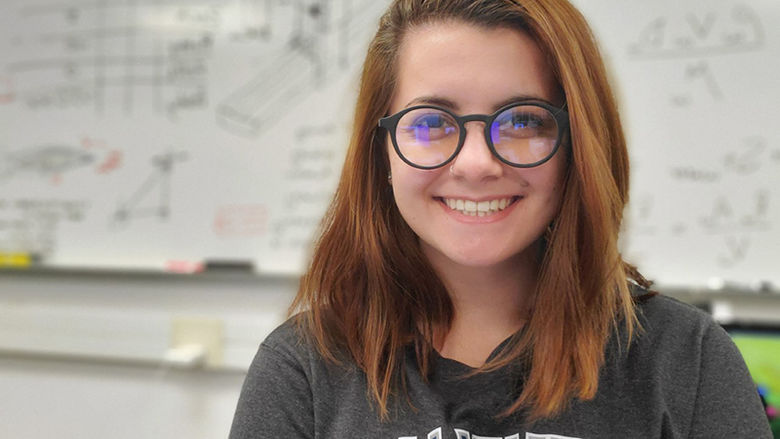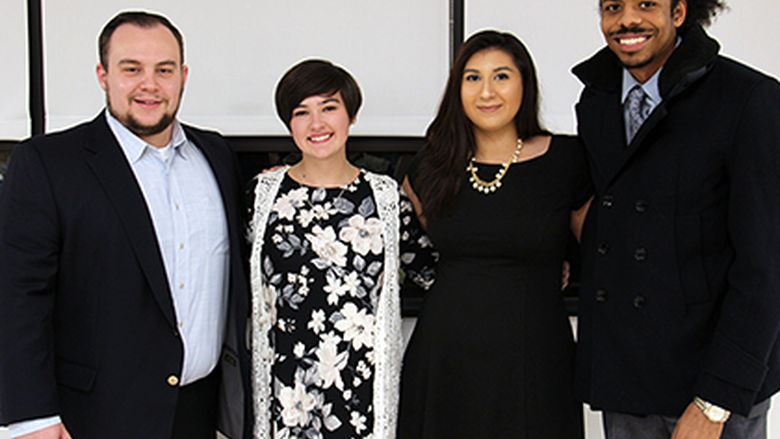
Dr. Sadan Kulturel-Konak works with Tito Orjih, an Electro-Mechanical Engineering Technology student who is a member of the startup company Trimatis, which is tackling the issue of plastic waste by creating patent-pending eco-filament for 3D printers.
Have an idea that you think can be turned into a commercial success?
Why not call on one of the newest resources for testing the validity of a new business idea – the appropriately named Penn State Berks Idea TestLab by the Flemming Creativity, Entrepreneurship and Economic Development (CEED) Center offers startups free access to other entrepreneurs, faculty members, business owners, venture capitalists, members of the community and many other resources.
Part of the Penn State Berks Flemming CEED Center, the Idea TestLab further expands the University’s strong emphasis on entrepreneurship programs and other campus activities.
The Iab's lead faculty includes Sadan Kulturel-Konak, professor of management information systems, and Abdullah Konak, professor of information sciences and technology. Kulturel-Konak is also the director of the Flemming CEED Center and the coordinator for the Entrepreneurship and Innovation (ENTI) minor.
The Idea TestLab has been developed as part of the National Science Foundation (NSF) I-Corps initiative at Penn State (The Invent Penn State NSF I-Corps Site is funded by the National Science Foundation NSF Grant No. 1735627). NSF established the program based on the Lean LaunchPad, an entrepreneurship methodology to test and develop business models based on querying and learning from customers, explained Kulturel-Konak.
The business ideas presented and analyzed during the first Idea TestLab, held on Wednesday evenings during the fall semester, included a translation service for hospital patients, recycling plastic bottles for 3D printer filament and a personal coaching app. In accordance with the NSF guidelines, all ideas for the program must be based on Science, Technology, Engineering and Mathematics (STEM) disciplines.
The team-based approach works well, said Konak. “Each includes current students or alumni or faculty members with the business model idea, a faculty mentor and a business mentor. In essence, we are making matches. For example, Greg Flemming, who made our CEED Center possible, and John Gatto, a true venture capitalist with more than 25 years of experience, are part of our team of 13 business and faculty advisers.”
The next step for the first “graduates” of the Idea TestLab will be compiling face-to-face interviews with at least 30 potential customers. They — and future teams — will be eligible to compete for an NSF micro-grant of up to $3,000, and then they become eligible to apply for an I-Corps National Teams $50,000 grant to develop their business models.
Konak stressed that another goal of the Idea TestLab is to increase awareness of and interest in the Penn State Berks Entrepreneurship and Innovation (ENTI) minor. “Most students do not start a business after they graduate. However, we hope that this experience will help them be able to come up with a solution for any problem, as well as give them a foundation for starting a business beyond graduation.”
Kulturel-Konak added, “We can practice being an entrepreneur by teaching them how to first test their ideas, then how to turn good ideas to a successful business initiative. We can show students innovation and how to maximize creative thinking. In the Idea TestLab, we are in the game and sometimes ahead of it, improving the entrepreneurial mindset, exposing students to working one-on-one with role models and giving them feedback.”
For Konak, the benefits of a mixed group to encourage student entrepreneurs are already evident. “We don’t teach a lot like we do in a traditional class. We show our teams the methodology. We expose them to people and ideas. This is good for our region because the scientific techniques we are using are well-tested. I know the teams want to be here.”
Kulturel-Konak summarized, “You can’t test your business idea inside the building. You can’t build your business in a laboratory. Together we can easily see whether a business model can succeed, or what it needs to do so. I feel really good about how much we have been able to help our teams in this first lab.”
The Flemming CEED Center also organizes many other events to promote entrepreneurship. For example, it sponsors an Entrepreneurship Speaker Series, hosts Creative Game Programming Workshops for Reading School District middle school students and a Creativity and Entrepreneurship session for Reading Southern Middle School students, supports the annual Global Entrepreneurship Week; and conducts a STEM Idea Contest.
Lean LaunchPad was created by serial entrepreneur-turned-educator Steve Blank; has been taught at Stanford, Berkeley, Columbia, and Caltech; and has been adopted by the National Science Foundation. It emphasizes experiential learning, a flipped classroom and immediate feedback as a way to engage students with real-world entrepreneurship. Students learn by proposing and immediately testing hypotheses. They get out of the classroom and talk to customers, partners and competitors and encounter the chaos and uncertainty of commercializing innovations and creating new ventures.
Teams interested in the Spring 2019 CEED Idea TestLab session must submit an application by Jan. 11, 2019. Team interviews will run from Jan. 9–16, and winning teams will be announced on Jan. 18. The sessions will be held from 5 to 7 p.m. on Wednesdays, Jan. 23 to Feb. 27, in room 111 of the Gaige Technology and Business Innovation Building, Penn State Berks.
To submit an application for the CEED Idea TestLab, visit sites.psu.edu/ceed/ . For more information, contact Professor Kulturel-Konak at sxk70@psu.edu.
